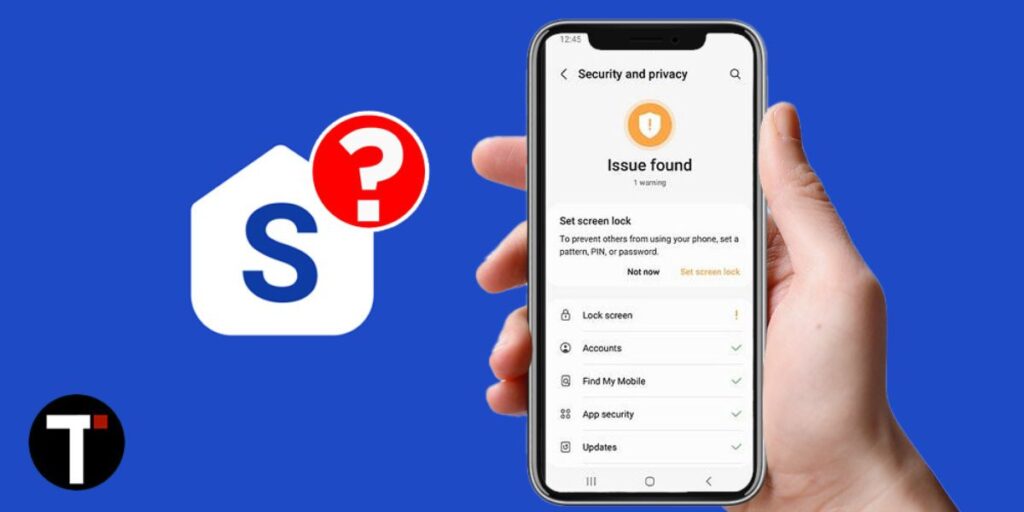Introduction
In the quickly propelling time of cell phones and computerised availability, worries about protection and information security have become progressively noticeable. One of the regions where these worries frequently emerge is in the domain of cell phone UIs. Samsung, a global leader in the smartphone market, utilises its proprietary user interface known as One UI Home.
However, amidst the convenience and features it offers, questions have been raised about whether One UI Home could potentially be a spy app, compromising user privacy. In this comprehensive exploration, we will delve into the intricacies of One UI Home, examining its functionalities, data handling practices, and the extent to which it may impact user privacy.
Understanding One UI Home: Functionality and Features
One UI Home serves as the default launcher for Samsung Galaxy devices, providing users with a customised interface for navigating their phones. Its design philosophy centres around improving one-handed usability, optimising the user experience for larger screens, and streamlining access to essential features. While it undoubtedly offers practical benefits, users have raised concerns about the extent of data collection and monitoring embedded within the interface.
With features such as customizable home screens, app organisation, and a range of themes, One UI Home aims to enhance user experience. However, this raises the question: to what extent does the interface monitor and collect user data to provide these personalised features?
Data Collection and Privacy Implications
To determine whether One UI Home operates as a spy app, it is crucial to scrutinise its data collection practices. Like many other user interfaces, One UI Home may collect data to enhance user experience, personalise content, and provide targeted recommendations. Notwithstanding, the basic inquiry is whether this information assortment stretches out past the thing that is essential for further developing usefulness and becomes obtrusive, compromising client protection.
Samsung, as an organisation, has underscored its obligation to client protection and security. The transparency of its data collection practices and the user’s ability to control and customise privacy settings are essential factors in assessing the ethical use of data within One UI Home.
Security Measures in One UI Home
In the ongoing discourse about privacy, it is imperative to consider the security measures implemented within One UI Home. Samsung has integrated features such as secure folder options, biometric authentication, and encrypted data transmission to safeguard user information. These actions plan to console clients that their information is shielded from unapproved access or possible abuse.
While these security highlights are promising, the adequacy of such measures relies upon their heartiness and the client’s familiarity with how to use them. A critical evaluation of these security measures is necessary to ascertain their capability to counter potential privacy threats.
User Feedback and Concerns
Understanding the user experience is fundamental in evaluating whether One UI Home is perceived as a spy app. By analysing user feedback and concerns expressed in online forums and reviews, we can gain valuable insights into the real-world impact of One UI Home on privacy. Addressing specific issues raised by users, such as unexpected data usage or suspicious background activities, is essential in determining whether these concerns are isolated incidents or indicative of a broader privacy issue.
User feedback provides a crucial perspective on how individuals interact with and perceive One UI Home. It allows us to identify patterns of concern and evaluate whether Samsung’s responses to user queries align with maintaining a transparent and privacy-centric approach.
Comparative Analysis: One UI Home vs. Other Mobile Interfaces
To contextualise the discussion, it is beneficial to compare One UI Home with other popular mobile interfaces in terms of data collection, privacy features, and user control. This comparative analysis will shed light on whether the concerns surrounding One UI Home are unique to Samsung devices or part of broader industry practices.
Examining how other major smartphone manufacturers handle user data within their interfaces provides a benchmark for understanding whether One UI Home’s practices are industry-standard or raise distinct privacy concerns. Such a comparison aids in gauging whether users are facing similar privacy considerations across different devices.
Conclusion
In conclusion, the question of whether One UI Home is a spy app requires a nuanced examination of its functionalities, data collection practices, security measures, user feedback, and a comparative analysis with other interfaces.By diving into these viewpoints, we plan to give a complete comprehension of the potential protection suggestions related with utilising One UI Home on Samsung gadgets.
As innovation keeps on progressing, guaranteeing harmony among development and client protection stays a pivotal thought for the two customers and the tech business at large. The continuous discourse between clients, makers, and administrative bodies assumes a critical part in moulding the fate of portable connection points and their effect on individual security. Through continued scrutiny and informed discussions, users can empower themselves to make conscious choices about the technologies they embrace, fostering a digital landscape that prioritises both innovation and privacy.




